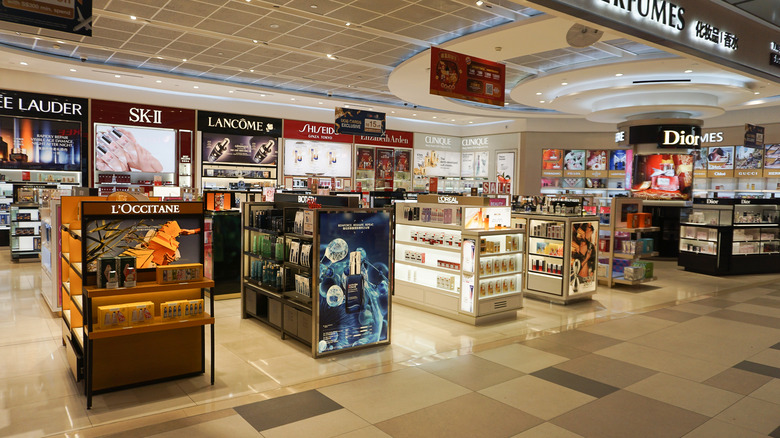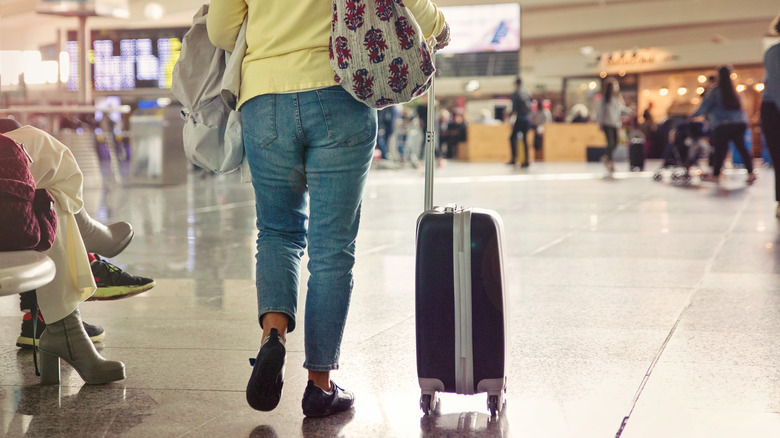Why Some Duty-Free Items Are Actually More Expensive
It's a common refrain that the airport experience has gotten worse over time. Being in one can feel like you're getting fleeced from every angle, with never-ending baggage fees, sneaky airport check-in charges, water so expensive it must be laced with gold, and frozen food at Michelin-star prices. One airport even has restrictions on how long you can hug someone — and it wouldn't be surprising if they introduced fines for rule-breakers. The one place consumers once felt like they were getting a deal was in the duty-free shops, but it might be time to kiss goodbye to that one too. In fact, the truth is that many duty-free items can actually be more expensive than in regular retail, thanks to high overhead costs and the fact that duty-free shops typically set their own prices.
Airport duty-free shops are almost impossible to miss. Usually, after passing through security, you're guided through a brightly-lit, winding emporium of vodka and perfume and watches and tobacco and chocolate — all presided over by sharply dressed staff with fresh haircuts and winning smiles. The allure is that the luxurious, sometimes airport-exclusive, goods are sold at reduced prices because the shop is considered a trade-free zone. However, things aren't so simple.
Trade-free zones have been around for thousands of years, and they're places where goods can be bought, sold, imported, exported, or manufactured while bypassing customs, tariffs, and normal trade regulations. In duty-free shops, which started appearing in airports in the 1960s, goods can be purchased without paying local VAT (value added tax) or consumption tax. This figure varies from country to country: In the U.K., Brazil, and Argentina, it rises to 20% or more; meanwhile, in Vietnam, Taiwan, and Nigeria, it's lower than 10%.
The hidden costs of duty-free shopping
Let's say you buy a $100 bottle of perfume in a London high-street retailer. It's logical to assume the same item would be cheaper in a Heathrow duty-free store once the British 20% VAT is substituted. However, in some cases, you might still be paying $100, or even more, depending on what the duty-free retailer has chosen for the price. There are some justifications for this, including factors such as rent and employee salaries, the cost of delivery and storage, and commissions paid to the airport authorities. But that isn't enough to appease consumers who bear the brunt of those costs — especially when they're shopping on the pretense of getting a bargain.
The tricky thing is, whether you're getting a deal or not ultimately depends on the retailer, the item, and the country. In 2022, The Points Guy conducted a thorough survey of popular duty-free items in transport hubs that revealed some useful findings. For example, Dubai is the most expensive airport for alcohol and perfume, but it's a steal for cigarettes. As for accessories, you're advised never to buy airport sunglasses in sunny countries.
Beyond that, countries also set their own regulations on how much of a given duty-free product you can bring across the border. As a result, there's no point in buying 800 cigarettes in, say, Kuala Lumpur, if the customs authorities at JFK require you to pay additional fees on 600 of them — or just confiscate them altogether.

